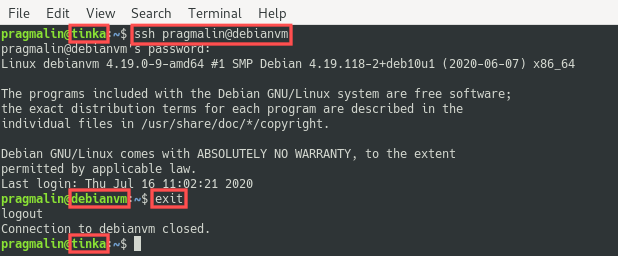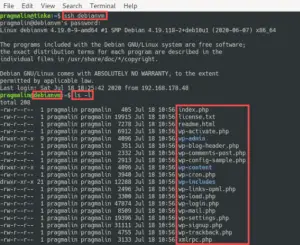
This is marked (1) in the next screen screenshot. In this first one, I’m displaying the last 15 lines from the vmkwarning.log using the command tail -n 15. I’ve also tested this on ESXi 6.5 and the only parameter that seems to be unsupported is log.fileName in that the vmware.log filename is retained regardless of the value set.Īn easy way to view logfiles on VMware ESXi is to SSH to the host and use old fashioned Linux commands such as cat, more, less, tail and head with a little bit of grep thrown in for filtering. Note: The above should work for most pre-ESXi 6.5 versions as per this KB. Ex: log.fileName=vmLog.txt or log.fileName=/vmfs/volume/VMLogFiles/vm1Log.txt. Logfile name: To change the log file filename and/or location, add the log.fileName to the VM’s VMX file.

You’ll find these listed as vmware.log, vmware-1.log … vmware-n.log. Ex: log.keepOld=5 sets a maximum of 5 log files at any one instance, with the oldest being overwritten when a new log file is created. Logfile retention: To set the level of log file rotation, add the log.keepOld value to the VM’s VMX file.Ex: log.rotateSize=1024000 sets the log file maximum size to 1 MB. Logfile size: Similarly, you can control the log file size by adding the log.rotateSize to VM’s VMX file."192.168.0.100", 2222, "testUsr", "supersecretpassword")įiles = list_files(android_path, ".Enabling logging for a VM in vSphere Web client Print("Could not find", origin_directory + _file) Rename_file(sftp, _file, origin_directory, "_c.") This copies files from a list, from an origin directoryĭownload_file(sftp, _file, origin_directory, destination) Sftp.rename(directory + filename, os.path.join(directory, new_name))ĭef copy_all_files(lst, origin_directory, destination, ssh, sftp): New_name = re.sub(r"\.*", suffix + extention, filename) This will rename a file in a directory with the passed in suffix. Sftp.get(origin + filename, destination + filename, callback=None)ĭef rename_file(sftp, filename, directory, suffix): Sftp.rename(directory + file, directory + new_end)ĭef download_file(sftp, filename, origin, destination): Print(directory + file, " will be in ", directory + new_end) Print("Connection attempt timed out when trying to connect to",ĭef fix_filenames(files, directory, rgx, replacement, sftp): Print("No valid connections for", host_ip) Ssh.connect(host_ip, port=port, username=username,Įxcept pmko.ssh_exception.NoValidConnectionsError: Ssh.set_missing_host_key_policy(pmko.AutoAddPolicy()) This will connect to an SSH Server and return the sftp and

Stdin, stdout, stderr = ssh.exec_command(command)ĭef connect_to_ssh_server(host_ip, port, username, password): Rawcommand = 'find 'Ĭommand = rawcommand.format(path=filePath, pattern=filePattern) Print("Collecting filenames of all photos in", directory)įilePath = '/storage/emulated/0/' + directory Which is passed as `.jpg`, or `.mp3`, etc. This will scan a directory for the filetype, Return Image.open(path)._getexif()ĭef list_files(directory, filetype, ssh):
Copy log file from ssh how to#
Just to test how to get EXIF data from photos. This will be implemented later and is currently AFAIK it does, just thought to mention here in case sftp.get() strips something out that I won't notice until later.Įdit: Ah, forgot to mention: you'll note that sometimes I do directory + filename and another I do os.path.join(directory, filename).any big difference I those or would it just be user preference? import paramiko as pmko The SublimeText linter doesn't show any PEP8 suggestions, so I think I'm doing good so far on that point, but of course defer to your wise judgement :) Also, is there a "best practice" to the order my functions should be in?Ī final note - this should copy the files, and all metadata/EXIF data, etc. I know some of my docstrings are rather obvious, but I keep reading it's best practice to include them, but any tips are appreciated there too. (Note the ssh.close() // quit() are repeated in both exceptions.) The SSH stuff was put together via trial/error and lots of SE/Google searching.Īny suggestions, from PEP8 conventions, to better workflow, are very much appreciated! I tried to handle errors correctly, but am curious if the quit() in the exceptions is what I want to do, or if that's not how it should be handled. I am decently familiar with Python, but this is the most "advanced" program I've made.
Copy log file from ssh android#
(So 20190321.jpg becomes 20190321_c.jpg on my phone.) That should show me, without doubt, that I can delete the file on my Android since it was successfully copied to the Harddrive.) (I want to know, for sure, what files on my Android were copied to the Harddrive, which is why I have the filenames get a _c amended to them.

The overall idea is: I have an Android phone and I would like to copy the files in a folder from the phone (which is running an SSH server, that's how I connect to it) to a harddrive connected to my Raspberry Pi.


 0 kommentar(er)
0 kommentar(er)
